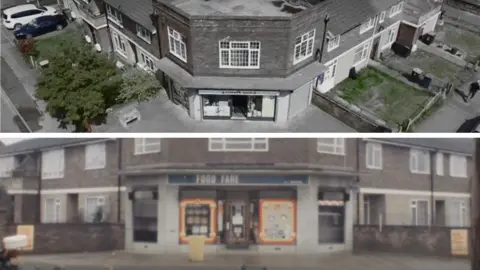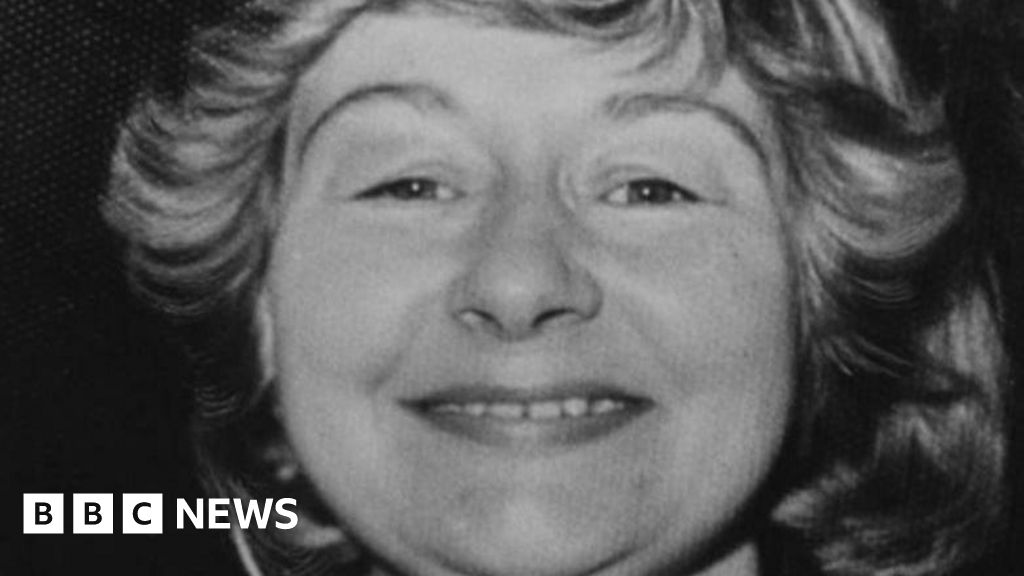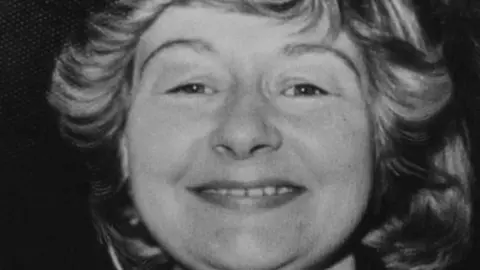 Bedfordshire Police
Bedfordshire PoliceAs a man begins a prison sentence for plotting the murder of his wife more than 40 years ago, the police detective who led the original investigation recalls how Allen Morgan was always a prime suspect.
For four decades, the murder of Carol Morgan haunted detective Brian Prickett.
He and his team suspected her husband but had never been able to prove Allen Morgan’s involvement, and the case remained a “thorn in his side” until Morgan was convicted for conspiracy to have his wife murdered.
On 13 August 1981, Det Supt Prickett walked into a convenience store on a council estate in Linslade, near Leighton Buzzard, Bedfordshire, and saw Carol Morgan’s body.
“It was the worst attack I’ve seen on a human being, definitely,” said the retired officer.
Morgan, 73, was convicted in June of conspiring to murder his wife after a cold-case team uncovered a vital new witness.
On Monday, he was sentenced to life in prison, with the judge recommending he serve a minimum of 22 years.
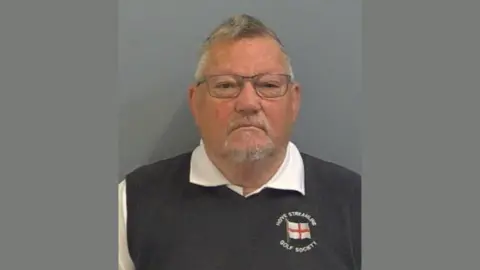 Bedfordshire Police
Bedfordshire Police‘Horrendous scene’
On the day of his wife’s murder, Morgan called police claiming to have discovered her body after returning from a cinema trip with her two children.
Prosecutors at his trial said the trip was his way of constructing a “cast-iron” alibi while he paid a hitman to kill Carol, 36, and make it look like a robbery at their convenience store.
The scene in the storeroom that police were confronted with is vivid in Mr Prickett’s memory.
“I went into the storeroom and saw the body of Carol Morgan, and that was a horrendous scene,” he said.
“It’s as clear in my mind as it was 40-odd years ago.”
He said it was clear from the outset it had been a “deliberate murder” and “the number of injuries she had suffered were horrendous”.
Morgan immediately became a person of interest. Police established he was a “womaniser, and arrogant and bossy”.
Mr Prickett, now 82, said Morgan showed none of the concern expected from a man who had just lost his wife in a horrific murder.
Witness testimony said a man carrying a bag left the scene and later got into an estate car, and officers worked to identify him.
“But we got a lot of circumstantial evidence early on about Allen Morgan – the shop was in financial difficulties,” Mr Prickett said.
“He’d indicated he wasn’t going to make a go of his marriage.”
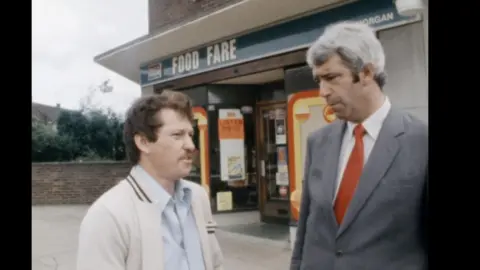
While police continued the hunt for the mysterious murderer, circumstantial evidence continued to grow against Morgan.
“I don’t think Allen Morgan knew how much we suspected him at the time,” Mr Prickett said.
“I’d spent many hours talking to him both formally and informally, and his character was clear, that he was a bully, he was arrogant, big-headed.
“I took the view that if we arrested him and put the brief circumstantial evidence to him he would have said, ‘You know I couldn’t have committed the murder and prove it’.
“That would have disclosed our hand and stopped him co-operating with us.”
Instead, Morgan was encouraged to do press interviews “and hopefully slip up”.
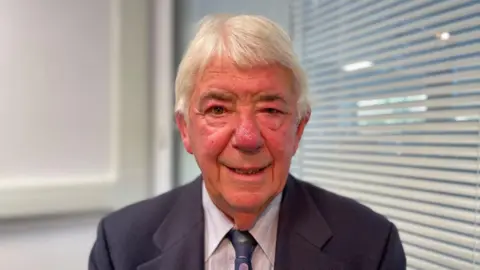 Laura Foster/BBC
Laura Foster/BBCAfter reopening the case in 2018, a cold-case review team revisited witness Jane Bunting, who was aged 17 at the time of the murder, and she provided key evidence at Morgan’s trial.
Ms Bunting told the trial that while at the former Dolphin pub in Leighton Buzzard, Morgan asked her whether an ex-boyfriend would know anyone who could kill Carol.
She had not told police at the time as she felt she owed Morgan’s now wife and then lover, known at the time as Margaret Spooner.
Mr Prickett said he had “enormous respect” for Ms Bunting for coming forward, and he believed her testimony was “so vital” in securing a conviction.
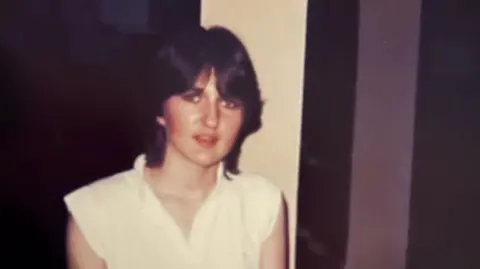 Bedfordshire Police
Bedfordshire Police‘A thorn in the side’
For more than two years during the original investigation, Mr Prickett and his team “gave it 100%” but were frustrated by the lack of a conviction.
“When you’re dealing with a case that goes on and you can’t detect it – it’s a thorn in the side because it hasn’t been successful.
“It’s always a thorn in the side – you’re trying to get some justice for the victim’s relatives.”
Looking back at the investigation, he does not believe there was anything they could have done differently.
Seeing Allen Morgan again at trial, Mr Prickett said: “I could see him as he was 40 years ago”.
But of course, it takes more than one person for there to be a conspiracy, and Mrs Morgan’s killer has never been found and brought to justice.
The police are hoping Morgan will tell them details they need to know to help them identify the murderer.
“I only hope now that even at this late stage, we can ID the person who committed the murder,” Mr Prickett said.
“That person is still out there. We might have suspicions but that is perhaps for further investigation.”
